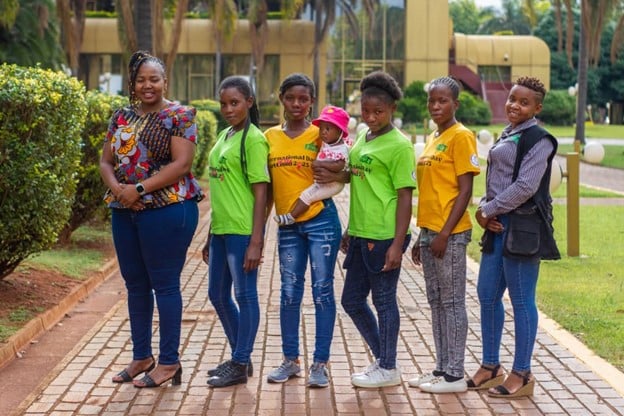
Farming Community Educational Trust
Improving Education for Girls in Zimbabwe
Why are Girls dropping out of School in Zimbabwe? Over the past years, girls and young women in rural and farming communities in Zimbabwe have been facing daunting challenges in accessing basic primary and secondary education.
The barriers they encounter are multifaceted, ranging from the need to traverse long distances to reach their schools, to the ever-present threat of forced marriages and the debilitating impact of poverty.
Many students had to walk as far as 22 kilometers to attend their classes, navigating dangerous roads and bridges that become impassable during the rainy season. This arduous journey, coupled with the lack of reliable transportation, has deterred countless girls from pursuing their education. Furthermore, the practice of forced marriage, wherein young girls are coerced into matrimony, has robbed them of their childhood, education, and prospects.
Poverty, too, has been a significant factor, as families often prioritize immediate economic needs over long-term investment in their daughters’ schooling, leading to a high dropout rate. Additionally, the lack of access to affordable and reliable sanitary products has exacerbated the challenges, with many girls forced to stay home from school during their menstrual cycles.
Boosting Education Funding and Sanitary Support in Zimbabwe
A group of organizations sat together to discuss how to improve the girls’ situation in the farming communities. UNICEF, FACET, ECOZI, World Vision and the Ministry of Primary and Secondary Education collaborated to convene a pre-budget analysis in November 2022 to discuss a new education financing. During the meeting, CSOs discussed ways to increase education funding and submitted a report highlighting gaps, such as the significant lack of sanitary wear in schools, the Basic Education Assistance Module (BEAM), and the need for free state-funded education for parliamentarians to present to the government.
The national budget was presented on the 25th of November. The post-budget analysis indicated that the government had increased education financing allocation from 13% in 2021 to 14% in 2022. The issues raised from the report were used to influence policy change and increase in education budget allocation for sanitary wear, Basic Education Assistance Module, and free state-funded education.
Finally, sanitary wear allocation increased from $7.34 million to $11.64 million in 2023. The Ministry of Primary and Secondary Education improved the criteria of selection for BEAM, by prioritizing the needy from the marginalized rural and farming communities.
How to Embrace Girls from Farming Communities?
This collaborative effort has significantly improved the access to education for girls and young women in farming communities, aligning with the GEAR project outcome which speaks to the improvement of delivery on education commitments. The change is also important in that it will reduce school dropouts, as the enhanced BEAM program now supports families who previously could not afford to send their children to school.
Empowering Zimbabwe’s Female Students for a Brighter Future
A brighter future for all female students in Zimbabwe is now possible by addressing the gaps in access to sanitary products and enhancing the BEAM program to better support the most vulnerable.
Through these collaborative efforts, schools can further embrace the needs of girls from farming communities by providing counseling services, flexible schedules during peak harvesting seasons, and mentorship programs that inspire these young women to pursue their dreams.
It is crucial that schools tackle the issues of forced marriages, poverty, and lack of menstrual hygiene support openly and create a welcoming environment for girls facing these challenges, empowering them to overcome the barriers and thrive in their educational journeys.
This holistic approach will not only improve access to education but also empower these girls to become agents of change within their communities, paving the way for a more inclusive and equitable future where no girl is left behind.
